Discovery
My entire discovery process has worked through establishing lineage and chronology. Because documents released in 1968 cannot source documents from 1969. It's a very simple, yet powerful principle for that reason alone. It leads to unmistakable truth, impossible to manufacture - unless you rely on revised documentation, or the services of untrustworthy middle-men.
Thus, when given a document of primary importance, establishing source quality becomes critical. Which books were influential? Which papers were commonly cited? Then you follow those, until you run out of an ancestry trail.
Then you establish the chronology of said documents, seeking to understand how and when the conception or theory changed along the way. And this process then allows for more specialised inquiries, because it reveals actors and dates.
That’s how the process - in brief - works when it comes to investigating a trail through books and papers. And while recent emergence of automatic tools has enabled the consumption of vast, vast quantities of documentation in the relative blink of an eye, the likes of ChatGPT simply cannot be relied on, if for no other reason but it often deliberately omitting information, even going to the extent of hiding said, unless explicitly called out. While it greatly accelerates the process in some regards, I fear you need to do the hard work yourself to get to the finer grain. But either way - that’s not the its core strength regardless.
Its core strength - and it’s not even a close call - is its ability to perform logical deduction. Which this exchange somewhat is evidence of… when you ignore the deliberate omissions, and patently absurd claims.
Using this system based on lineage and chronology will lead to the gradual understanding of a hierarchy of information; different papers or books will synthesize or break down information differently, but through this arduous, tedious, and at times mind-numbingly boring process, you should eventually be able to conceptualise some level of a hierarchical system; how it was put together, when, by whom, and how information is seemingly ‘exchanged’ between the various themes of the hierarchy, be it, say, between society and environment, environment and ecology, ecology and economy, or economy and society, thus creating a circular reliance.
And - of course - in the course of establishing this hierarchical pattern, you will frequently encounter new information, calling for a re-evaluation of the hierarchy. Sure, it sucks to be wrong or have wasted time, but it’s far better to own up quickly, because it eliminates the waste of time. And time is far more important - and freqently, in far shorter supply - than your pride. Besides, all of us make mistakes - even ChatGPT does, though its mistakes often appear strategic.
But once you possess this, iterated… Skeleton of History, you can start concentrating on inviduals, organisations… and who funded the endeavour. At this stage you should reliably run into the foundation class. Because who has the gold, makes the rules - and broadly decide upon topics of research. Gates is a fairly recent addition to this exclusive group; Ford, Rockefeller are predictably encountered earlier, and search and you might even find the occasional link to Carnegie, Rhodes, or Vanderbilt. Carnegie is not rare, but they operate very differently to Rockefeller, who’s by far the more flamboyant, but further, they operate in slightly different spheres, hinting at strategic collusion behind the scenes. Rhodes you’re more likely to encounter through their scholars, and your frequency of encounters will tend to increase as you approach genuine power in primarily the United Stated and United Kingdom. And this can helpfully be used as a guide, because Rhodes scholars know where true power resides, and don’t waste their time on second or third best. They will gravitate towards the very top of the Anglo-American establishment1.
And the Skeleton of History insertion above is by intent, because this systemic approach is somewhat of a custom version of Kenneth Boulding’s work, taking us to General Systems Theory, and 1956.
However, when it comes to matters in public capacity, no such source trail tends to exist, because most press releases do not generally come with indexed references, or verbose footnotes. Consequently, when a May 23, 1972 treaty, outlining a cooperation in environmental matters between the USA and the Soviet Union appears, placing this in greater context becomes... rather a lot more difficult2. But it still calls for the same approach, establishing when, what, how, who, and finally… why, once you’ve got somewhat of an outline of the established hierarchy.
But enough introduction. The treaty in question is titled ‘Cooperation in Environmental Protection - Agreement Between the UNITED STATES OF AMERICA and the UNION OF SOVIET SOCIALIST REPUBLICS’
… and perhaps it’s just me, but I find it somewhat extraordinary that this hasn’t received further attention, but then again, it wasn’t exactly trivial to come by. It was in fact not until I found this referenced elsewhere in a similarly obscure document that google informed me of its existence.
First off, the document relates to environmental protection. It calls for ‘proper utilisation of contemporary scientific, technical, and managerial achievements’, to ‘make possible the improvement of the interrelationship between man and nature’.
I will say that their equivalent of ‘best available science’ sounds a lot better. But then, they did spend decades in a deliberate attempt to dumb down the public through UNESCO. Regardless, this initiative calls for mutual cooperation, closer relations, and calling for ‘Exchanges and Cooperation in Scientific, Technical, Educational, Cultural, and Other Fields’ - outlined in a document signed only the month prior. And in this context, this relates to the field of environmental protection, where the ‘cooperation will be aimed at solving the most important aspects of the problems of the environment, and will be devoted to working out measures to prevent pollution, to study pollution and its effects on the environment, and to -
Develop the basis for controlling the impact of human activities on nature’.
And this will be implemented in the areas of air pollution, water pollution, environmental pollution and its impact on climate, enhancement of the urban environment, the preservation of nature, marine pollution, earthquake prediction, arctic and subarctic systems, and last but not least -
Legal and administrative measures for protecting environmental quality.
Activities will be cooperatively conducted through exchange of experts, scientists and information, bilateral conferences, and -
Joint development and implementation in the fields of basic and applied sciences.
The document continues, calling for the ‘establishment and development of direct contacts and cooperation between institutions and organisations, governmental, public and private…’. And article 5 calls for the establishment of a US-USSR Joint Committee on Cooperation in the Field of Environmental Protection, seeking to coordinate affairs. And this document was signed by Richard Nixon, the ‘conservative’.
And to achieve this aim, a joint committee will be created to which each nation will appoint a lead. So who can the Nixon administration trust to lead the American side of said committee - why, none other but our old friend, Mr Choo3 Choo4.
It would appear rather the remarkable choice, because Russell E Train… has somewhat of a track record. And not of the good kind, incidentally. The awfully conflicted one.
And it’s not just because of the Rockefeller funded Conservation Foundation. No, Russell also co-authored a 1965 document, recommending a World Heritage Trust5, along with Joseph Fisher, and Harold Coolidge. And this document laid the ground work for the eventual 1972 UNESCO World Heritage Convention6, though through the IUCN. And this convention seeks to ‘protect’ primarily ‘cultural landscapes’, making it ultimately about global land management - much like the UNESCO Biosphere Reserves - from which these will be monetised through the Global Environment Facility for… well, carbon credits initially.
This recommendation was the 1965 White House Conference on International Cooperation, though it’s claimed that Lyndon B Johnson didn’t bite. In reality, however, LBJ isn’t quite innocent.
The 1965 White House Conference on International Cooperation itself called for a new order of world cooperation7, policies to conserve and develop the world’s resources, methods to rid the world of destructive disease, and world peace.
As for the Heritage trust and Joe Fisher - he founded Resources for the Future8, with almost absurd levels of funding courtesy of the Ford and Rockefeller Foundation. And it was they who in 1963 suggested the use of the absurd Contingent Valuation Model to measure the financial worth of recreational value. And this CVM model would later be used to calculate ‘non-use value’ (and recreational) of the environment for sakes of valuing ‘ecosystem services’.
Harold Coolidge? He was the president of the IUCN9 in 1968 - with Russell Train being a member.
Dr V.A. Kovda of the Soviet Union is Victor Kovda. He secured ICSU’s invite to UNESCO early on.
… and in 1973, Kovda became the ICSU SCOPE President10.
Fraser Darling? He contributed to the absurd January, 1969 UNESCO Courier release dialling up the fear-mongering to a such ludicrous extent it appears almost comical, an issue incidentally also starring Rene Dubos, who not only spent his entire professional life with Rockefeller11…
… but also co-authored the Maurice Strong commissioned 1972 UNCED book, ‘Only One Earth’ with Barbara Ward, whose name you’ll also find associated with Spaceship Earth in 1966 (General Systems Theory), credited with early advocacy of sustainable development (before it was titled such, and also General Systems Theory), and on the Conservation Foundation board of trustees in 197612.
Fraser Darling also chaired the 1963 meeting13, which led to the very first, ludicrous ‘carbon consensus’; ‘Rising Carbon Dioxide Content of the Atmosphere’ - brought to you by the Rockefeller-funded Conservation Foundation, linked above.
And who participated beyond Darling? Why, Charles Keeling, and Gilbert Plass. In fact, of the active participants, those two were the only climate scientists.
Gilbert N Plass in 1955 authored his theory on… Carbon Dioxide alarmism14…
… and though there doesn’t appear to be a direct link to Rockefeller, there are plenty of indirect ones - along with military funding. Plenty of those.
This 1955 theory of his can be further traced back to 1953 and Time Magazine15.
And Keeling? Well, let’s just say that his 1957 IGY experiment was designed by Roger Revelle16 who received a $1m grant in 1954 courtesy of... Rockefeller17. An astronomical figure at the time.
And although Roger didn’t appear at the 1963 meeting leading to the early ‘carbon consensus’, he was present at the 1963 ICSU Executive Board General Assembly18… along with Paul Weiss… of the Rockefeller Foundation.
… and in 1969, the ICSU launched the Viktor Kovda associated Scientific Committee on Problems of the Environment (SCOPE)… and they received large grants19, courtesy of… yes, foundations, including Rockefeller.
‘The large grants for the conduct of projects have come from the United Nations Environment Programme, UNESCO, the World Health Organization, business corporations (Exxon, Mobil, and Shell), and foundations (Carnegie, Ford, General Service, A. W Mellon, Rockefeller Brothers Fund, and others).‘
Hopefully I’ve made my point in regards to how unbelievably incestrous this milieu truly is. It’s always the same names, the same funding sources, and the same, pin-point precision targeted aim, with the benefit of hindsight.
The original document on environmental protection was of course signed in late May, 1972… which was immediately prior to that year’s big event. UNCED in Stockholm20, organised by Maurice Strong. And on the US Advisory Committee who do we find?
We find the future presidents, Jimmy Carter and George HW Bush, we find Robert Cain of the Council on Environmental Quality, Sydney Howe of the Conservation Foundation, George Harrar of the Rockefeller Foundation, and… Laurance Rockefeller.
And the Council on Environmental Quality is intricately aligned with the Conservation Foundation - and the CEQ was the primary objective of… NEPA.
I covered NEPA in the article on the Conservation Foundation (linked above), but what’s of importance is that the lead architect of the NEPA was Lynton K Caldwall.
And Lynton… well, he in 1968 was also a member of the IUCN Commission on Landscape Planning21 which appears quite the extraordinary conflict of interest, given his involvement in the drafting of NEPA at expressly the same time.
And the IUCN we also saw earlier, on the topic of the UNESCO World Heritage Commission. Because as their site state, the IUCN developed similar proposals for their members in 1968… two of whom (Coolidge & Train) were draftees of the 1965 text, presented at the White House.
Regardless, the original 1972 treaty - relating to USA/USSR cooperation on the environment - you probably never heard of, because it has lived entirely in the shadow of not just Maurice Strong’s UNCED kicking off in Stockholm just a few weeks later, … but also the much-publicised SALT (Strategic Arms Limitation Talks) Agreements22.
Now, in 2010, an article titled ‘Environmentalism for the Atlantic Alliance: NATO's Experiment with the "Challenges of Modern Society"’ was released in an issue of ‘Environmental History’23. It states not only that ‘most studies have glossed over the role of NATO as Nixon's principal vehicle for East-West cooperation‘, but -
‘U.S. President Richard Nixon began using environmental cooperation as part of his foreign policy. But his decision to pair global environmental action with the most powerful military alliance in history -NATO-puzzled nearly everyone, including the NATO allies.‘
I don’t have access to the paper in question, but ‘The essay shows how Nixon's use of NATO deepened political animosities between East and West, and between North and South, hastening the bloc-to-bloc politicization of global environmental issues.‘
Allow me to posit a different theory. Because as it happens, a cache of documents were released only recently, and a number of sources24 unbelievably ran it on the irrelevant premise that - somehow - they ‘hid’ the effect of carbon dioxide from the people. I mean, honestly, this is rather that dumb and ill-informed that only a MSM reporter could draw that conclusion.
Now, let’s have a look at the memo in question, dated September 17, 1969.
‘The co2 content is normally in a stable cycle, but recently man has begun to introduce instability through the burning of fossil fuels. At the turn of the century several persons raised the question whether this would change the temperature of the atmosphere. Over the years the hypothesis has been refined, and more evidence has corne along to support it. It is now pretty clearly agreed that the C02 content will rise 25% by 2000.’
The first person making said discovery was Svante Arrelius in 189625. And - ironically - he speculated that this in fact would be advantageous.
As for the latter, that’s the fraudulent 1963 ‘carbon consensus’, as presented (through an indirection) by - why, if it isn’t Mr-‘$1m Rockefeller grantee’ Roger Revelle himself26. Now look at the date. This, ‘best available science’ just exactly came in on time for the 1965 White House conference. What an extraordinary coincidence!
The Moynihan, 1969 document continues -
’This could increase the average temperature near the earth' s surface by 7 degrees Fahrenheit. This in turn could raise the level of the sea by 10 feet. Goodbye New York. Goodbye Washington, for that matter. We have no data on Seattle.‘
So goodbye New York and Washington by the year 2000?
‘It is entirely possible that there will be countervailing effects. For example, an increase of dust in the atmosphere would tend to lower temperatures, and might offset the co2 effect.‘
Oh wait - no, perhaps not. Perhaps they know absolutely nothing.
‘In any event, I would think this is a subject that the Administration ought to get involved with. It is a natural for NATO. Perhaps the first order of business is to begin a worldwide monitoring system.‘
A NATO-led worldwide monitoring system, to protect the environment from the alleged dangers of a rising atmospheric density of co2 - in a press release from 1969?
It just so happens that SCOPE was established by the ICSU in 1969, and their first report from 1971 - an input document for the 1972 UNCED, commissioned by… yes Maurice Strong - was on Global Environmental Monitoring. And a post-conference follow-up report was commission. That became SCOPE 3 released in 1973, otherwise titled - Global Environmental Monitoring System.
But even that description is missing in detail. See, though SCOPE was indeed launched in 1969, it was first discussed in 1968 at the General Assembly of the ICSU, and at their first meeting in September, 1970, four working groups were created, one of which was the ‘Commission to Monitor the Environment’., and their task was to study ‘The Planning of a global monitoring system‘. And only a month later (October, 1970), the International Biosphere Programme transferred its related global environment monitoring responsibilites.
But only in December, 1970 came the request from Maurice Strong. It’s yet another of those extraordinary ‘coincidences’, no?
As for the NATO angle, at an April, 1969 suggestion of Nixon, on November 24, 1969, the ‘NATO Committee on the Challenges of Modern Society‘ was established27. To lead this initiative, ‘… Nixon named as his point man for the project his special assistant (later, counselor), the late Daniel Patrick Moynihan, White House intellectual-in-residence and, most likely, the brains behind CCMS‘. However, ‘After a year or so, Moynihan handed his CCMS hat to CEQ chief Russell Train‘28.
It was Moynihan who in that 1969 press release above requested NATO run global surveillance. And the above states that when he stepped down ‘after a year or so’, Russell Train became the chief (in 1970) of the NATO agency given the task to -
‘But it was the third bright idea that brought the assembled dignitaries not to their feet but to extremes of wonderment and despair… international cooperation on seeking solutions to environmental problems common to developed nations: in short, the creation of a NATO Committee on the Challenges to Modern Society (CCMS)‘
And that then logically infers that when Kissinger sent Russell Train to Moscow in early 1972 to negotiate the drafting of the May 1972 treaty on environmental protection…………… Train also led the NATO project working on global surveillance for stated sake of environmental protection.
SCOPE 3 led to GEMS, and - oh boy - did that global surveillance system grow - did it ever. The 1984 IUCN General Assembly reveals -
‘The GEMS programme is large, involving some 30 global networks in the areas of climate, long-range transport of air pollution, health, oceans, and renewable natural resources. It is a very active programme in which most nations of the world participate.‘
… and in 1996, Bill Clinton issued a press release, stating - ‘Addressing the threat of emerging infectious diseases‘, with ‘Contributing factors, such as climate change, ecosystem disturbance, increased movement of people and goods, …‘
… and this alleged problem of Emerging Infectious Disease was to be solved through -
‘Establish a global infectious disease surveillance and response system, based on regional hubs and linked by modern communications… Ensure the availability of the drugs, vaccines, and diagnostic tests… contribute to a worldwide infectious disease surveillance, prevention, and response network‘
... and it furthermore reveals that Rockefeller Foundation were busy on an ancestor project in 1980… INCLEN29.
… and I won’t go into depth here, but that quite simply is extraordinary30 timing31. Nevermind that the CDC, at this stage, was led by William Foege, who also signed the first official pandemic plan in 1978, and revealed ‘One World - One Health’ in 2004 at the Rockefeller Centre, where said ‘Manhattan Principles’ eventually became the ‘Berlin Principles’ in 2019.
Incidentally, that 1978 pandemic plan was released due to the 1976 Swine Flu episode, which just amazingly kicked off at the exact moment CDC number two - Walter Dowdle - not only participated in a Rougemont, Switzerland conference tiled ‘International Conference on the Control of Influenza’, but in fact delivered opening and closing remarks. A conference with two primary aims - surveillance, and vaccines.
On the topic of surveillance, the Clinton-announced initiative went through the Department of Defense, and they in 1997 announced their ‘Global Emerging Infectious Surveillance’ project, which through its 2023 update outlined their present state of capability and long-term objectives - using a One Health Approach - which seeks to run surveillance on climate change and urbanisation, and...
… the environment, land use, migration, AMR, zoonoses, wastewater, each and every illness (and non-illness), animal surveillance, next-gen sequencing, improve in areas of data harmonisation, sustainable financing, include new domains and locations such as farms, reservoirs, residential settings, open-air markets, and naturally, all of this is to work in real-time. In short - the LOT.
Global, real-time surveillance, from which there will be NO ESCAPE.
I spent a lot of time digging up all of this information. A LOT of time. And to be quite honest, it’s was cathartic to find that 1969 Moynihan press release above. Because it snapped NATO, and thus, the Department of Defense into the equation. And the role of the military through the scamdemic was always… implied, but not directly linked. Sure, you can point at the grants, but those arguments are generally easy to parry, because there are a lot of grants. Another example of indirect involvement is through the Georgetown’s Global Surveillance scheme, contributed to by Peter Piot while on his self-proclaimed ‘Covid-19’ deathbed early on in the ‘pandemic’. And that drags in AvesTerra, which incidentally was developed to track… HIV surveillance. In fact, they received a $2m grant, courtesy of the CDC in 2018, and on the eve of the scamdemic, the AvesTerra lead architect co-authored a related paper.
And do you know what else this does? Lend credence to my hypothesis that PEPFAR always was primarily about rolling out global surveillance.
And now appreciate that all of this kicked off during a period of time, amazingly overlapping the two - alleged - hoaxes, which thematically also appear to align with contemporary developments… and it appears highly likely that yet again, the crazy conspiracy theorists were right.
So let me summarise a partial chain of events, because I appreciate that was a lot of information -
1947. The Bardeen/Brattain/Shockley development of the transistor at AT&T’s Bell Labs. A groundbreaking event that set in motion a technological revolution.
1948. Led by Wassily Leontief, the ‘Harvard Economic Research Project‘ is commissioned, with a grant from the Rockefeller Foundation.
1953. Leontief writes ‘Studies in the Structure of the American Economy‘, a landmark work in the field of input-output economics on the back of the 1948 project.
1953. Gilbert Plass speaks to Time Magazine about his theory of carbon dioxide alarmism.
1954. Fueled by the revolution in microelectronics, the elite declares war on the people at the first Bilderberg conference per the ‘Secret Weapons’ document.
1954. The Society for the Advancement of General Systems Theory is launched, an initiative to ultimately automate society, through hierarchical, global modelling, using a ‘trans-disciplinary, holistic approach’.
1955. The release of the paper ‘The Main Features of Cybernetics’ by Sobolev, Lyapunov, and Kitov marks the official launch of Soviet Cybernetics.
1956. The first president of the SAGST, Kenneth Boulding, releases the influential paper ‘General Systems Theory - The Skeleton of Science’, generalising Leontief’s input-output analysis beyond economics.
1956. MIT System Dynamic Group is founded by Jay W Forrester, with funding courtesy of the Rockefeller Brothers Fund.
1956. In an article published in the left-wing New Statesman, Fabian Society member Charles Percy Snow drums up a social vs natural sciences disagreement, indirectly calling social scientists ‘gay’.
1957. The prerequisite for the ‘carbon consensus’ kicks off through Rockefeller associate Roger Revelle and the International Geophysical Year - the measurements of atmospheric levels of co2, leading to the Keeling Curve.
1959. At the University of Cambridge, Charles Percy Snow through his ‘Two Cultures’ Rede Lecture dials up the alleged social vs natural sciences spat, dragging in the entire West.
1962. Victor Glushkov establishes the Institute of Cybernetics of the National Academy of Science of Ukraine.
1963. The (obviously fake) ‘carbon consensus 1.0’ is manufactured through incestuous scientists and organisations with foundation funding.
1964. The Fourth Dartmouth Conference takes place in Leningrad.
1964. Nikita Khrushchev is removed from power in the Soviet Union, replaced by Leonid Brezhnev, and GOSPLAN Chair Alexei Kosygin becomes Premier.
1965. The Kosygin reform calls for the development of automated control systems, and an emphasis on cybernetics in education.
1965. The White House Conference on International Cooperation, leading to the eventual establishment of the UNESCO World Heritage Convention, as drafted by Russell E Train (Conservation Foundation, EPA, CEQ, IUCN), Joseph Fisher (Resources for the Future), and Harold Coolidge (IUCN).
1966. France withdraws from the NATO command structure due to Charles de Gualle’s refusal to integrate France's nuclear deterrent with other North Atlantic powers, or to accept any collective form of control over its army.
1966. In a manner described as ‘sudden and abrupt’32, the NSAM 345 cryptically states that the 'President also wishes to have developed other forward-looking proposals... These should embrace... Constructive political, diplomatic, and economic initiatives addressed to Eastern Europe and the Soviet Union'.
1967. The Report from Iron Mountain for sakes of continuous elite rule suggests moving focus away from war, and onto the environment.
1968. UNESCO Biosphere Conference. Calls for Man and the Biosphere (reserves), global ‘environmental’ surveillance, global natural resource inventories, and outlines zoonotic illnesses driven by man’s lack of ‘balance’ with the environment, and the need to establish said ‘balance’ to ‘maintain’ his ‘health and well-being in their broadest connotations’.
1969. The Scientific Committee On Problems of the Environment is launched.
1969. Moynihan suggests NATO running Worldwide Monitoring for sakes of environmental protection from co2 emissions. This leads to the creation of the NATO CMSS project, of which Moynihan becomes lead.
1970. Moynihan steps down, and Russell Train becomes the new lead of the NATO CMSS project, tasked with environmental protection through worldwide monitoring.
1970. SCOPE creates a working group, tasked with studying ‘The Planning of a global monitoring system‘. The International Biosphere Programme almost immediately transfers their related responsibilites to this new group.
1971. Maurice Strong commissions SCOPE 1 - Global Environmental Monitoring; an input document for UNCED 1972.
1971. Jay W Forrester publishes the book ‘World Dynamics‘, based on his World2 model developed in the late 1960s.
1972. At the request of Henry Kissinger, Russell Train heads to Moscow for talks in relation to environmental protection.
1972. The USA and the Soviet Union signs treaty, calling for Cooperation on Environmental Protection.
1972. The above is immediately ignored by the media, as the Strategic Arms Limitation Talks - SALT - Agreement is signed.
1972. Environment media highlight UNCED in Stockholm organised by Maurice Strong establishes the United Nations Environment Programme (UNEP).
1972. Russell E Train is appointed American lead of the US-USSR Joint Committee on Cooperation in the Field of Environmental Protection.
1972. Through ‘The Limits to Growth’, the Club of Rome releases the disastrous predictions of its World3 model, a continuation of Jay W Forrester’s World2 model.
1973. Viktor Kovda of the Soviet Union becomes president of SCOPE.
1973. SCOPE 3 is released, otherwise titled ‘GEMS - Global Environmental Monitoring System’, including breathtaking levels of detail.
1974. UNEP/GC/24 discusses adding public health surveillance to GEMS.
1976. Anatol Rapoport suggests ‘bridging’ the ‘Two Cultures’ through General Systems Theory, thus providing the ‘solution’ to the non-existing dispute.
1976. Alleged Swine Flu episode, amazingly only affecting Fort Dix - while Pandemic Planning was discussed in Rougemont, Switzerland, by big pharma executives and Walter Dowdle of the CDC.
1978. CDC chief, William Foege, signs the first Pandemic Plan. Primary focus is on surveillance, and ‘safe and effective’ vaccines.
1979. ‘Carbon Consensus 2.0’ is launched. It’s a political declaration, for which the ‘science’ is anything but ‘settled’.
1979. The Convention on Long-Range Transboundary Air Pollution (CLRTAP) opens for signature, thus capitalising on above.
1982. The World Charter for Nature outlines that nation states shall ‘ensure that activities within their jurisdictions or control do not cause damage to the natural systems located within other States, or in the areas beyond the limits of national jurisdictions’, thus capitalising on above.
1984. GEMS. Now gathering global surveillance data across more than 30 data streams, and a programme to which most governments contribute.
1985. UNEP/GRID, the Global Resource Information Database is launched, a repository relating to surveillance data gathered by GEMS.
1992. The Convention on Biological Diversity (CBD), United Nations Framework Convention on Climate Change (UNFCCC), and Agenda 21 launch at the Earth Summit in Rio, organised by Maurice Strong.
1996. Bill Clinton announces global surveillance, with bonus vaccines and diagnostic tests for everyone.
1997. The Department of Defense launches the Global Emerging Infectious Surveillance program.
1997. H5N1. Preposterously fake illness is feigned in Hong Kong, ultimately leading to livestock surveillance, poultry vaccination, and culling.
2004. One World - One Health is launched at the Rockefeller Centre by William Foege. The One Health Approach seeks to balance humanity with nature, through surveillance, vaccines, and culling. (now read H5N1 entry above again)
2019. Berlin Principles. An update to the ‘Manhattan Principles’ aka ‘One Health’.
2023. DoD-GEIS now includes… practically everything.
The rise of Soviet Cybernetics33 can ultimately be traced back to 1954, and Victor Glushkov’s later push34 in the science circles, which overlapped with Alexei Kosygin’s rise to political power35, leading to the establishment of the Institute of Cybernetics in 1962. And the 1965 Kosygin reform36 promoted the development and implementation of Automated Control Systems (ASU in Russian) for managing industrial enterprises and economic processes. These systems were based on cybernetic principles and aimed to optimize production, resource allocation, and decision-making processes through computerization and automation.
Kosygin, further, ‘in the aftermath of the Cuban Missile Crisis, Kosygin was the Soviet spokesman for improved relations between the Soviet Union and the United States‘.
The Convention on Long-Range Transboundary Air Pollution was opened for signature in 1979, but came into force on March, 16, 198337.
The World Charter for Nature was adopted in 1982. Thus, when the CLRTAP came into force, it in effect enabled the World Charter for Nature. The charter further includes a curious detail in item 8, outlining that the ‘allocation of areas of the earth to various uses shall be planned‘.
When combined, the 1992 UNFCCC/CBD constitutes a lever of control, which will be used to progressively squeeze all life out of the West. It’s their Grand Plan.
As for the 1968 UNESCO Biosphere Conference, I have repeatedly stated this was a top, top event of critical importance. I absolutely stand by that.
To me it furthermore appears somewhat of a golden goose, because every time I return to the document, I discover more ‘coincidences’. Here are a further few, only just discovered. From item 49 -
‘The working document on man and his ecosystems; the aim of achieving a dynamic balance with the environment, satisfying physical, economic, social and spiritual needs was prepared on the basis of a draft submitted by Professor René Dubos (U.S.A.) with comments and additions by Dr. Marion Clawson (U.S.A.), . Dr. F. Fraser Darling (United Kingdom),‘
Astonishing, isn’t it? Rene Dubos drafted the core principles of ‘dynamically balancing’ man with nature, similar to which you can find in Article 1 of the currently negotiated pandemic draft. And Fraser Darling provided comments and additions.
‘(a) it is a necessity to develop ecology towards ‘landscape-ecology’; (b) the development of the concept of ‘human ecology’, in the true ecological sense both on the social and biological levels, is urgently needed;‘
… I’ve been building up for this. But I quite simply cannot let it go. I cannot believe how unbelievably well this has been planned. Not only did ‘landscape ecology’, and ‘human ecology’ not exist as developed concepts in 1968 - but the fusion of the two creates what I concluded was the end objective a few months back - a proposition with which ChatGPT agrees.
And what do I find in items 55 and 57 -
‘The global approach would comprise studies on total biomass and its variations with time, energy flow, efficiency of energy conversion (photosynthesis, energy conversion between trophic levels), evaluation of input and output of energy and mass as well as internal transfer processes‘
Biomass, energy flows, efficiency of energy conversion, input-output evaluation of energy and mass, and the internal transfer processes. That quote will come in handy in a future article.
‘IBP should therefore be followed up by some intergovernmental programme of biosphere research emphasizing the functioning of ecosystems in the broadest sense.‘
I’m sorry, but none of this is coincidental. Finally, in item 60 we find -
‘… further extension of existing monitoring networks for air contamination and pollution involving both substances and conditions was desirable. Worldwide determination of normal , constituents of the air (for example CO2) as well as pollutants is urgent.‘
… and there’s that call for global surveillance of air pollutants, and co2.
-
The first of a few points not addressed earlier - the 1965 White House Conference on International Cooperation - I only found out about this event through… the Report from Iron Mountain38 - no, really - which furthermore called out said conference as a staged event.
Next, the Viktor Kovda link is important. Because there is precisely 0% likelihood that he wouldn’t have known about the Global Environmental Monitoring System, which would obviously infer that the top bureaucrats of the Soviet Union also knew about it. Especially given that he - in 1971 - was engaged with the ICSU SCOPE Bureau - during the planning stages of the Global Monitoring Systems39.
And the top Soviet bureaucrats would for sure also have known about the 1969 Moynihan call, asking for NATO to get involved in global surveillance.
Consequently, when the 1972 treaty on cooperation on environmental protection was signed, there was absolutely no way Moscow didn’t realize that this through UNEP/GEMS, ICSU/SCOPE would lead to global surveillance - run by NATO.
What Moscow agreed to - per 1972 treaty - was to perform ‘joint development and implementation in the fields of basic and applied sciences‘ for sakes of ‘controlling the impact of human activities on nature‘ through the development of ‘legal and administrative measures for protecting environmental quality‘ - with NATO acting in the capacity of gathering global surveillance input data to achieve this objective.
-
But - wait - I still haven’t posited my core theory. Let me do that now.
In 1964, during the Fourth Dartmouth Conference in Leningrad, David Rockefeller went to Moscow, ostensibly to discuss trade with Khrushchev40. Was this trip really about trade? And why was John Kenneth Galbraith - the only identified contributor to the Report on Iron Mountain report - included as a delegate to the conference?
Especially as that report was being drafted at the very same time.
… and leave it to breathtakingly dumb MSM reporters41 to completely miss the rather crucial fact that the Russell E Train-led Council on Environmental Quality42, created through Conservation Foundation influenced NEPA, in fact negotiated the 1972 Agreement on Environmental Protection43, with the one and only Henry Kissinger in 1971 requesting that Russell E Train jump on a plane to Moscow, no later than February, 1972 to discuss these matters.
Incidentally, Russell wasn’t the only Conservation Foundation/CEQ/EPA/WWF man-on-the-scene at the time. William K Reilly44, who served under George HW Bush, was a senior CEQ staffer while Train was in charge.
Thus, is it entirely impossible that shifting the focus off of war and onto the environment required cooperation between the two superpowers, because in those days, it would be expected that one would immediately call out the other - especially given the Cuban missile crisis45?
Because while the ‘Report from Iron Mountain’ called for the intentional pollution of the atmosphere, it would be far easier to simply corrupt related atmospheric measurements, a strategy which at the same time would create an opportunity to not only fuse the two ideologies through the environment, but also gradually concentrate power in ever-fewer hands in the West, leading up to this very moment in time. A vision incidentally outlined by not just the ‘Secret Weapons for Quiet Wars’ ‘hoax’ document, but similarly in the ‘Report from Iron Mountain’ ‘hoax’.
But how? And what exactly is ‘applied science‘? And why the need for ‘global modelling’?
That’s up next.
See you in Laxenburg, Austria.






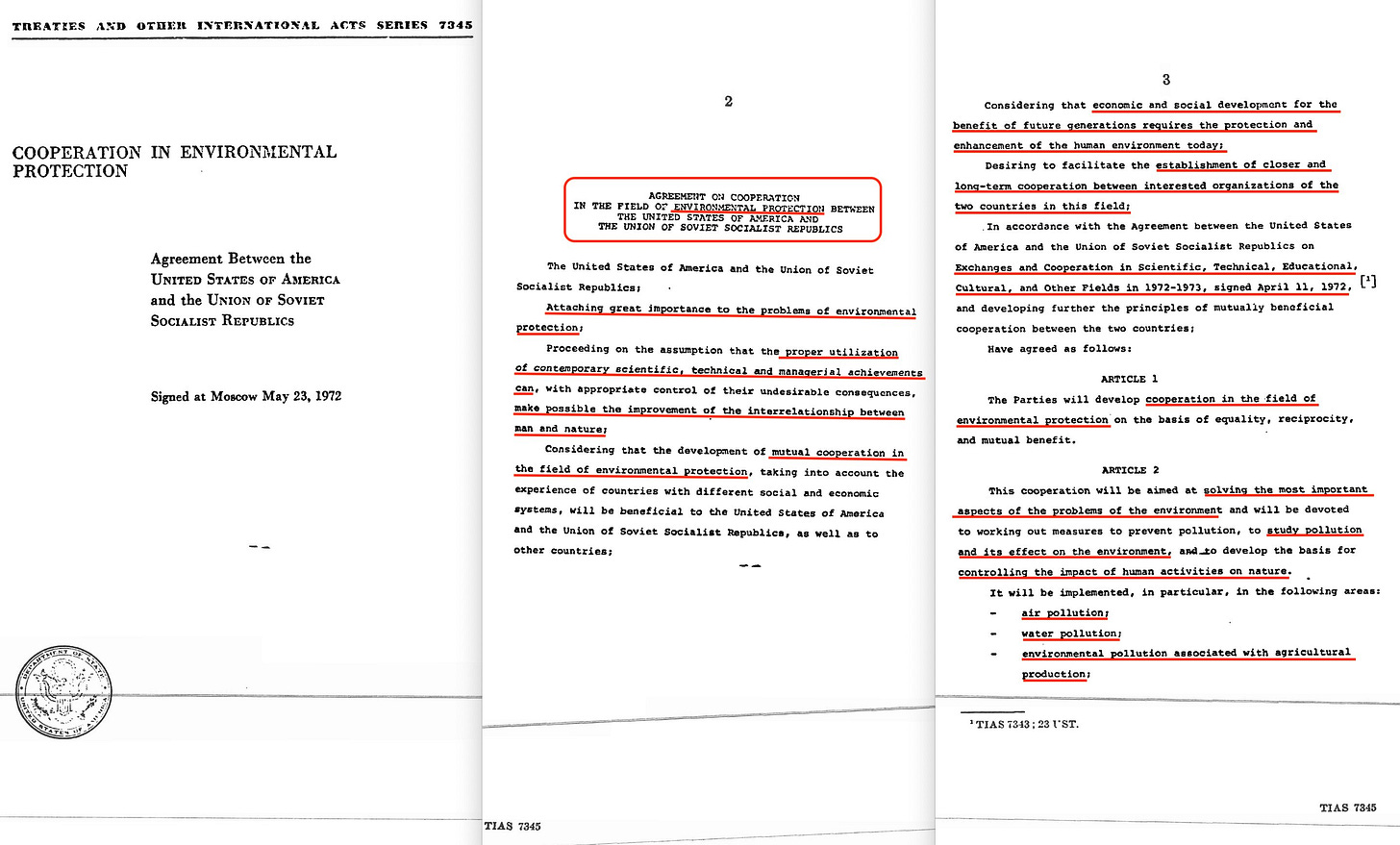
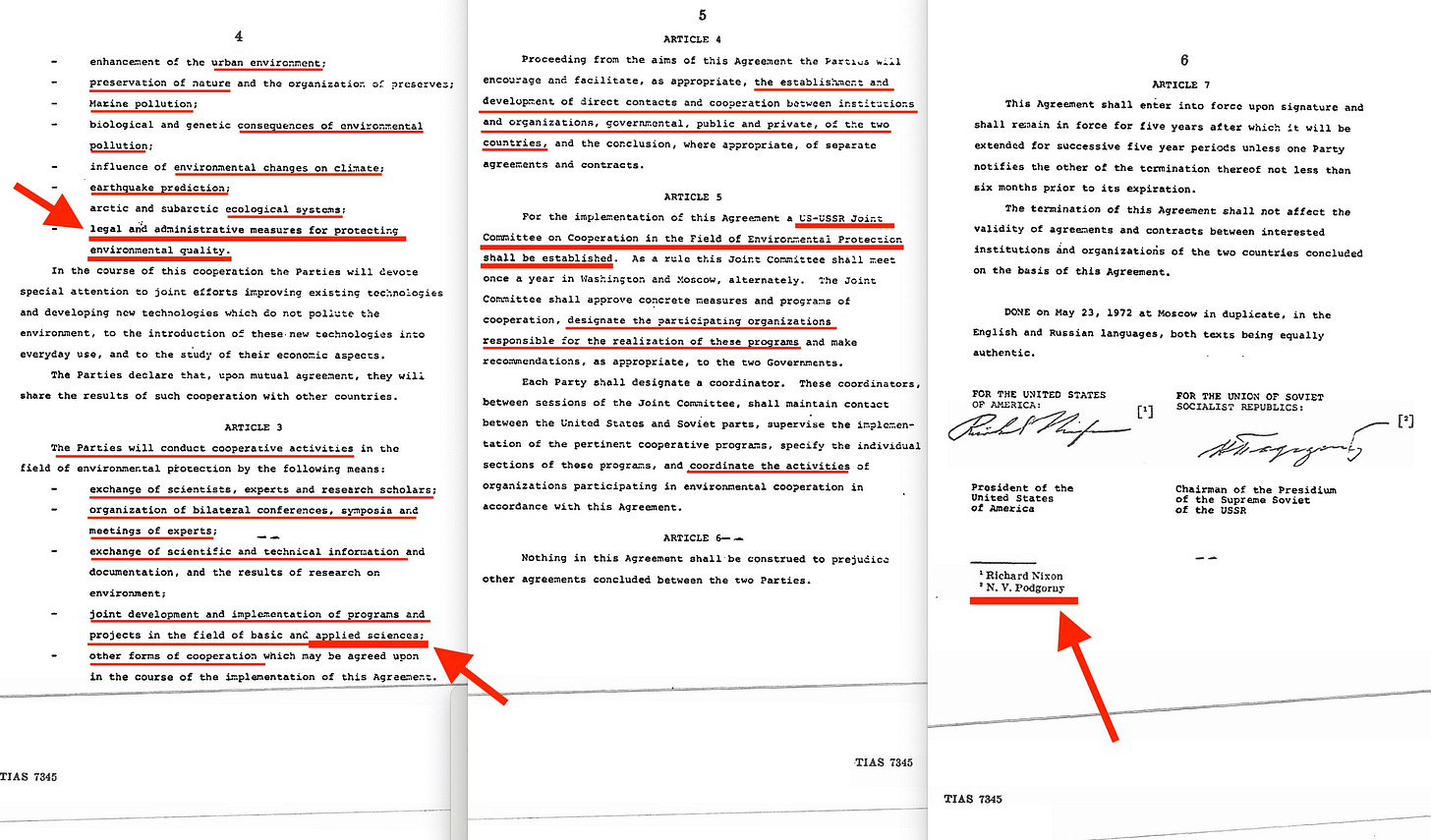




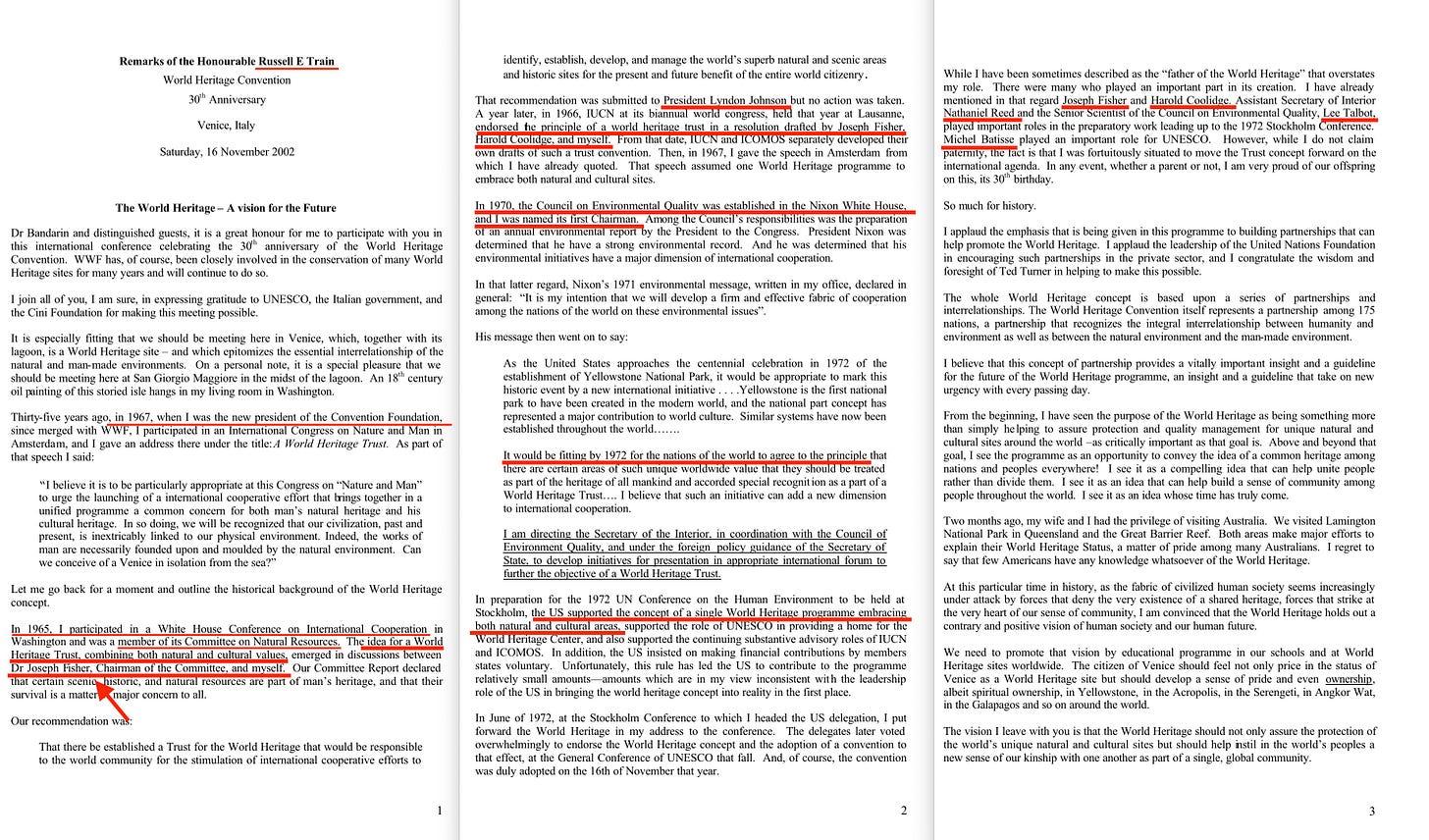
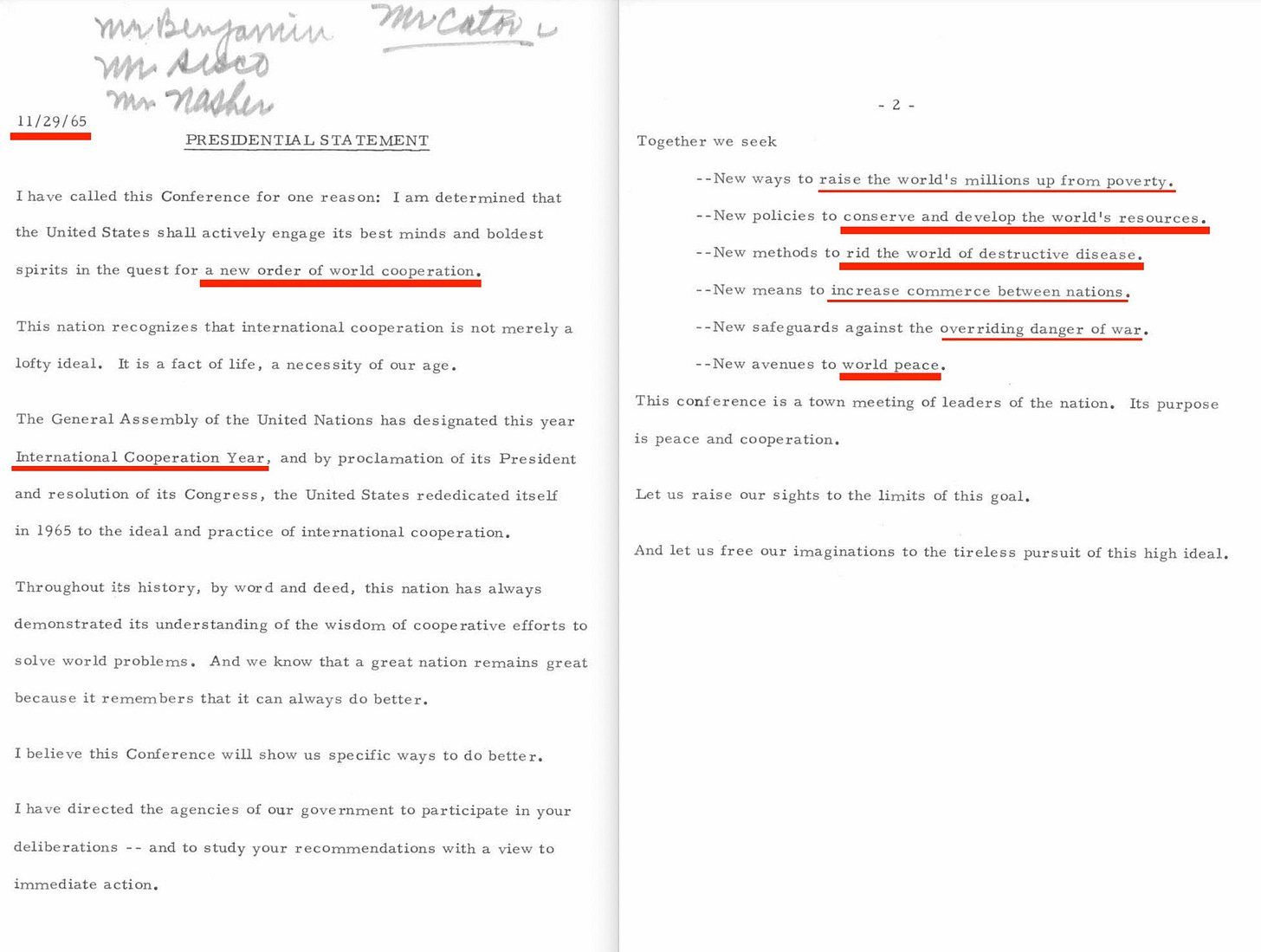
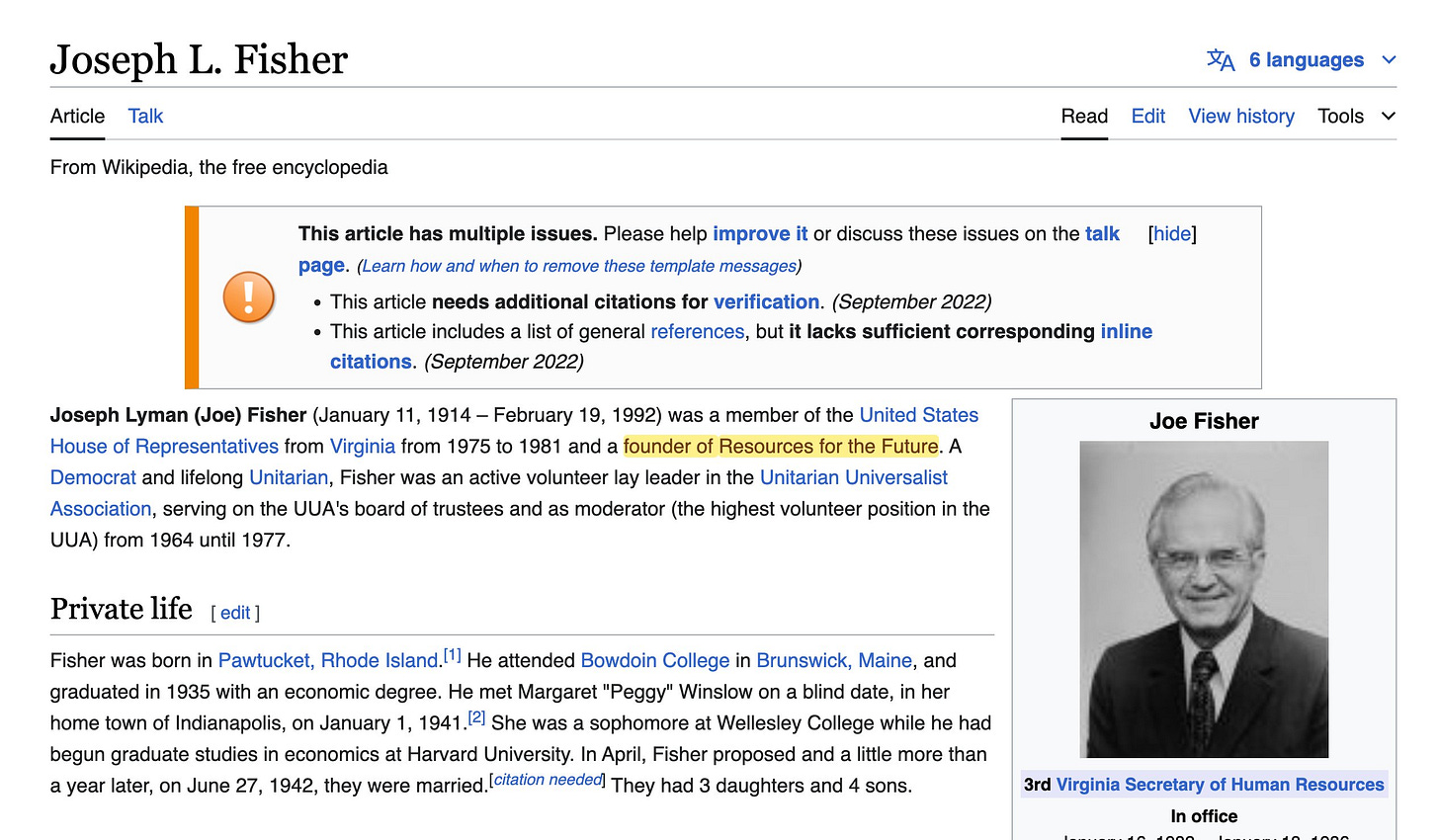


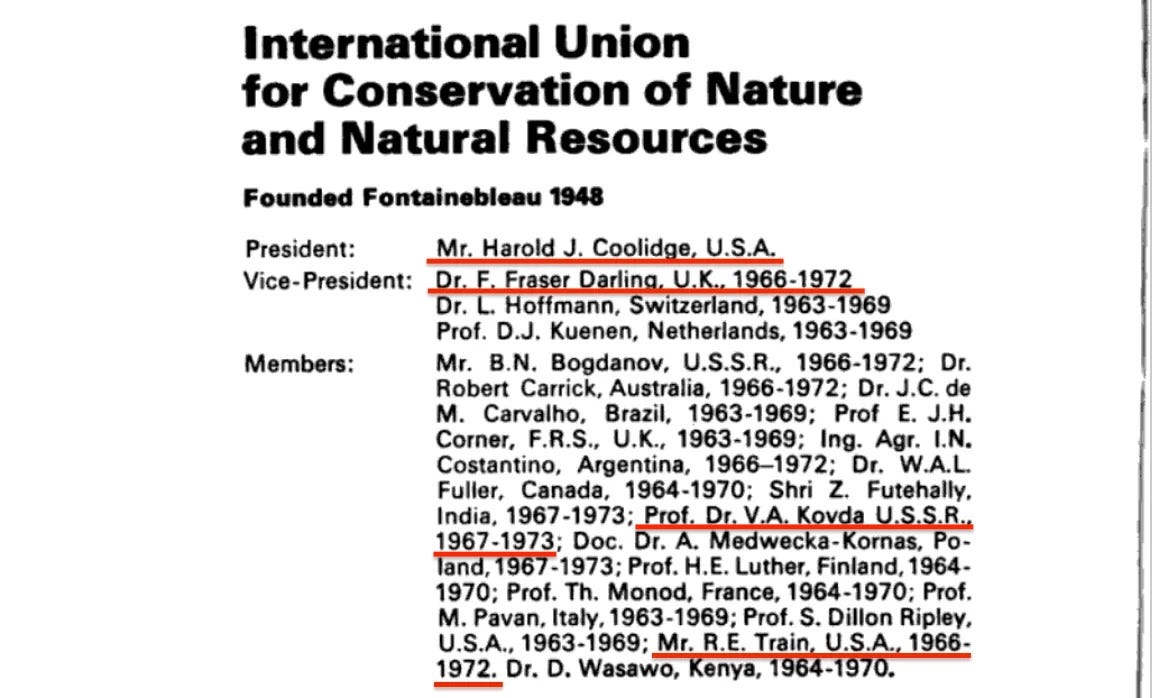








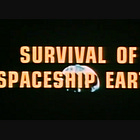





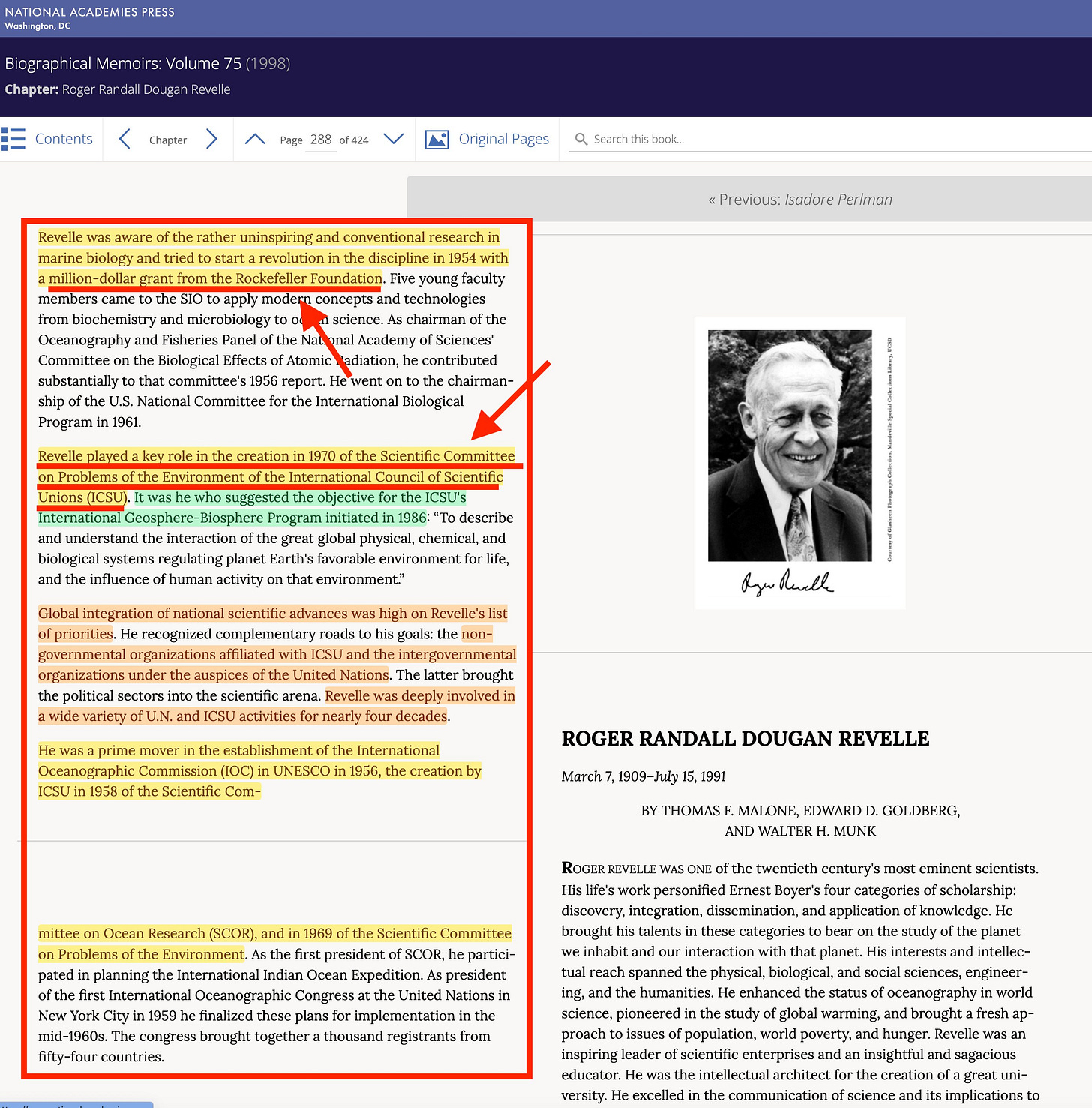


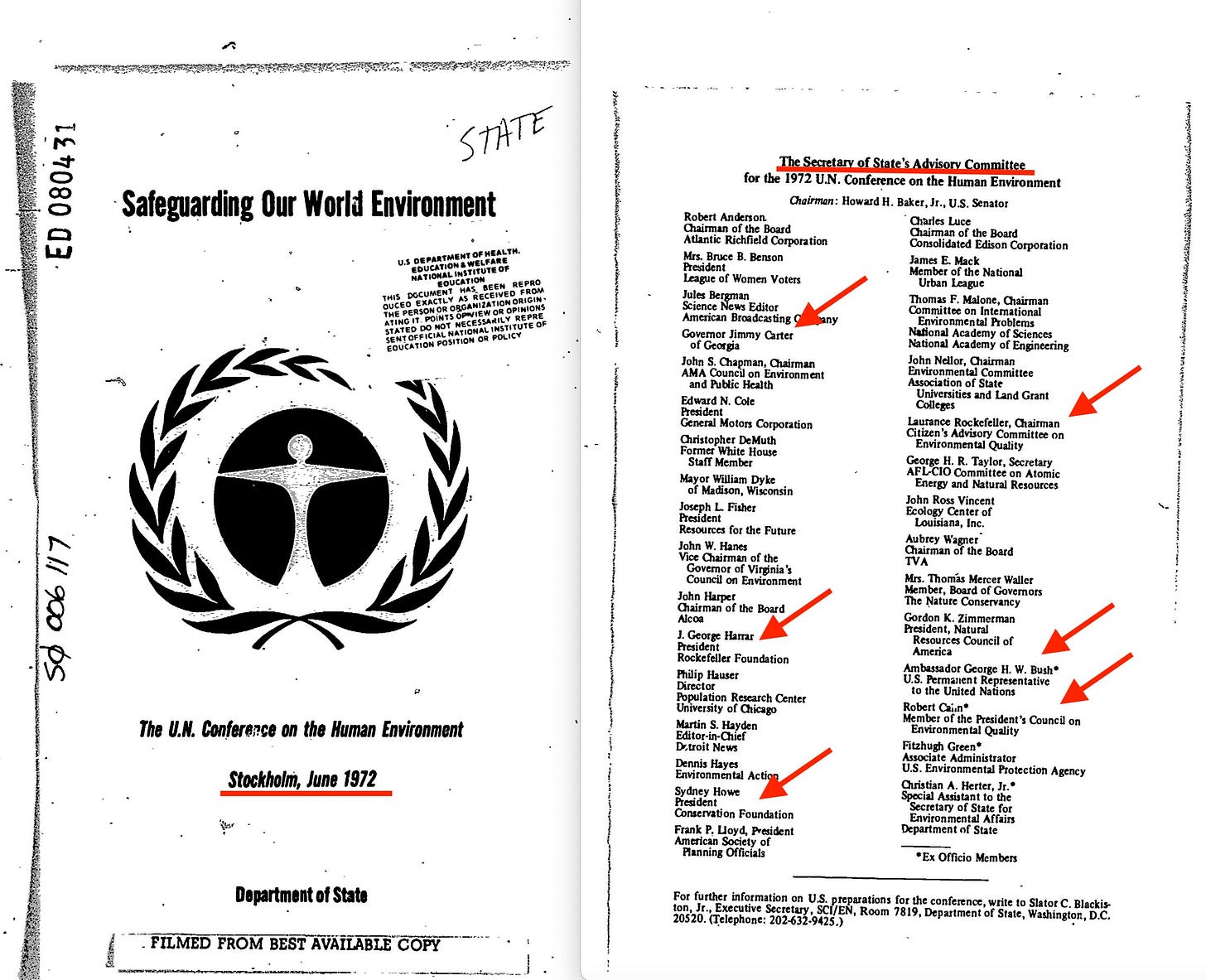




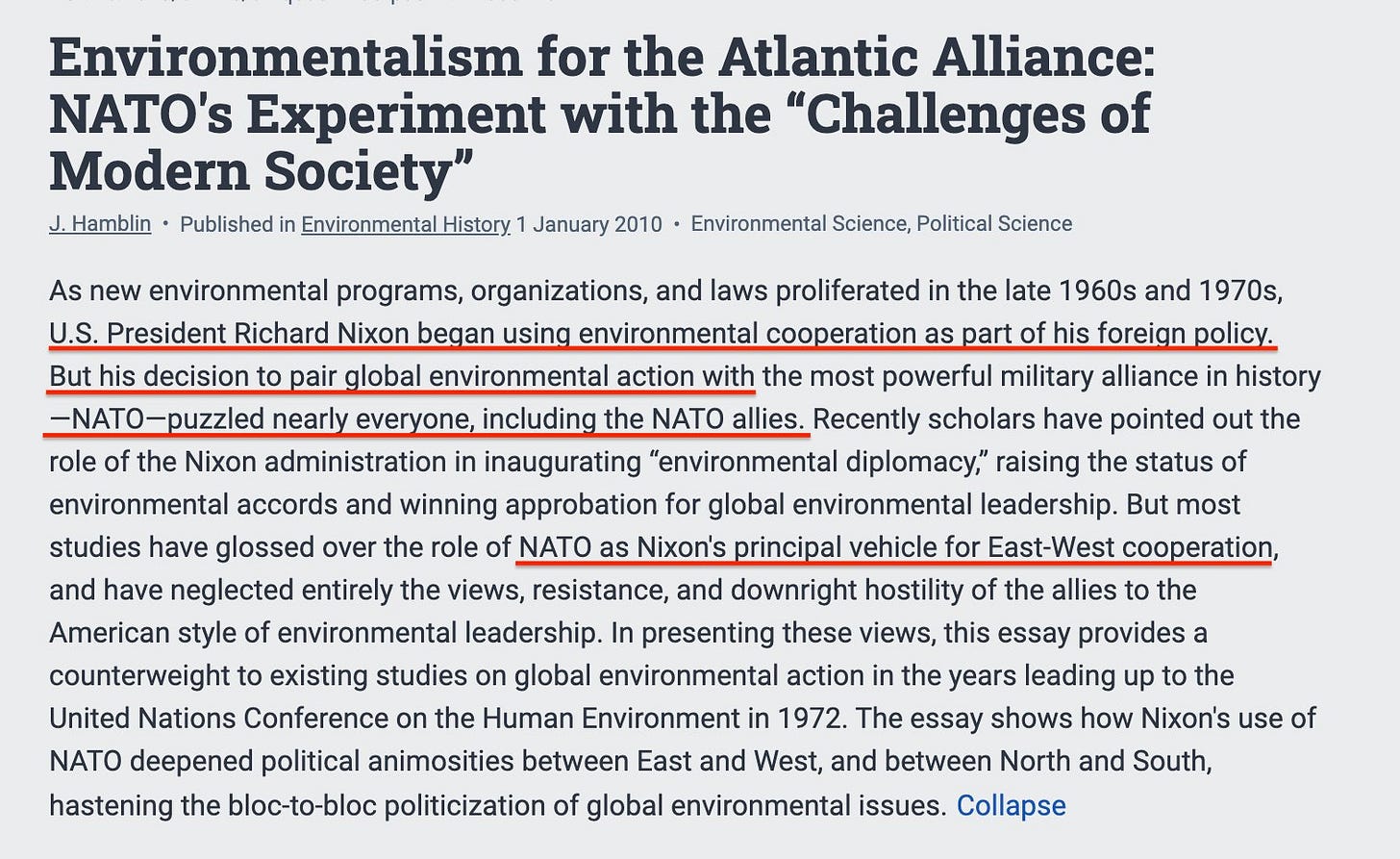

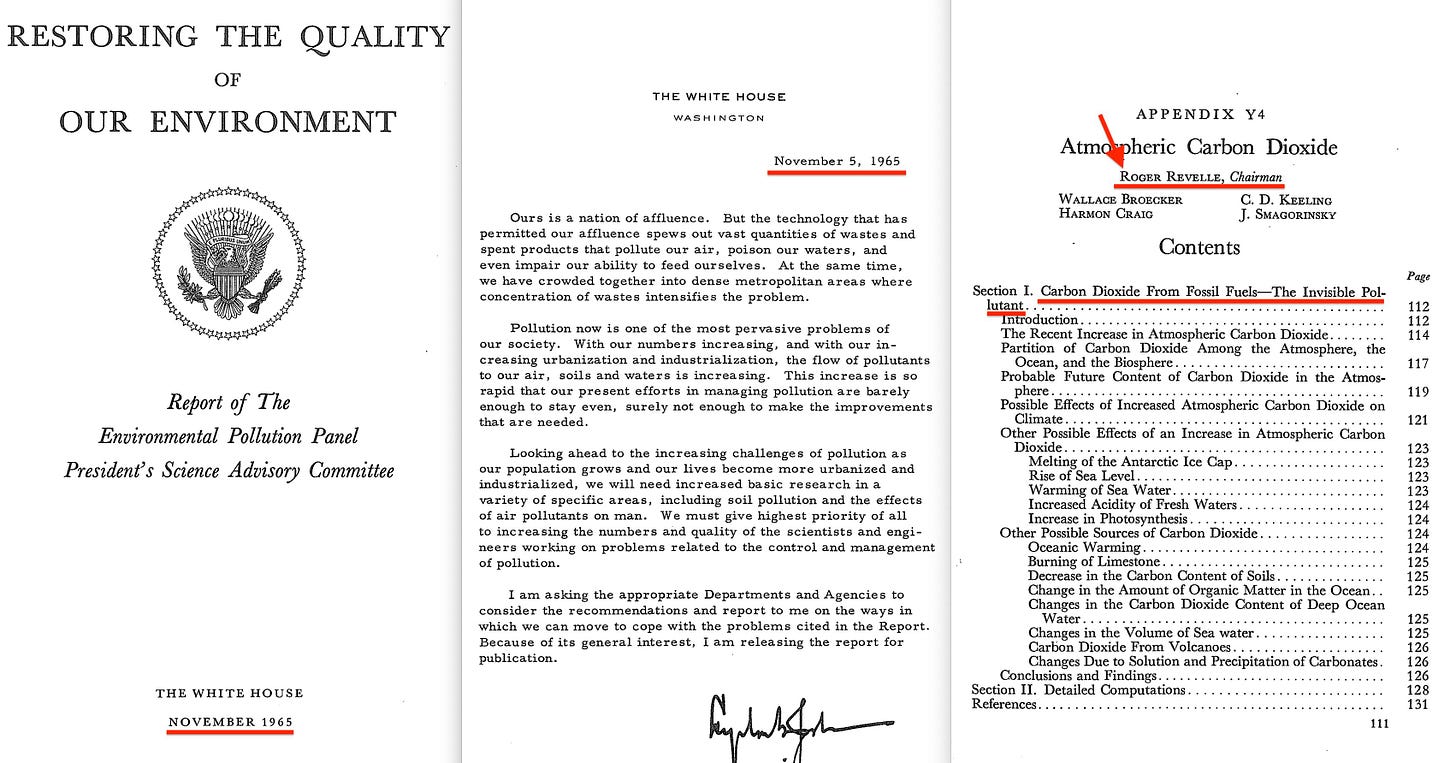












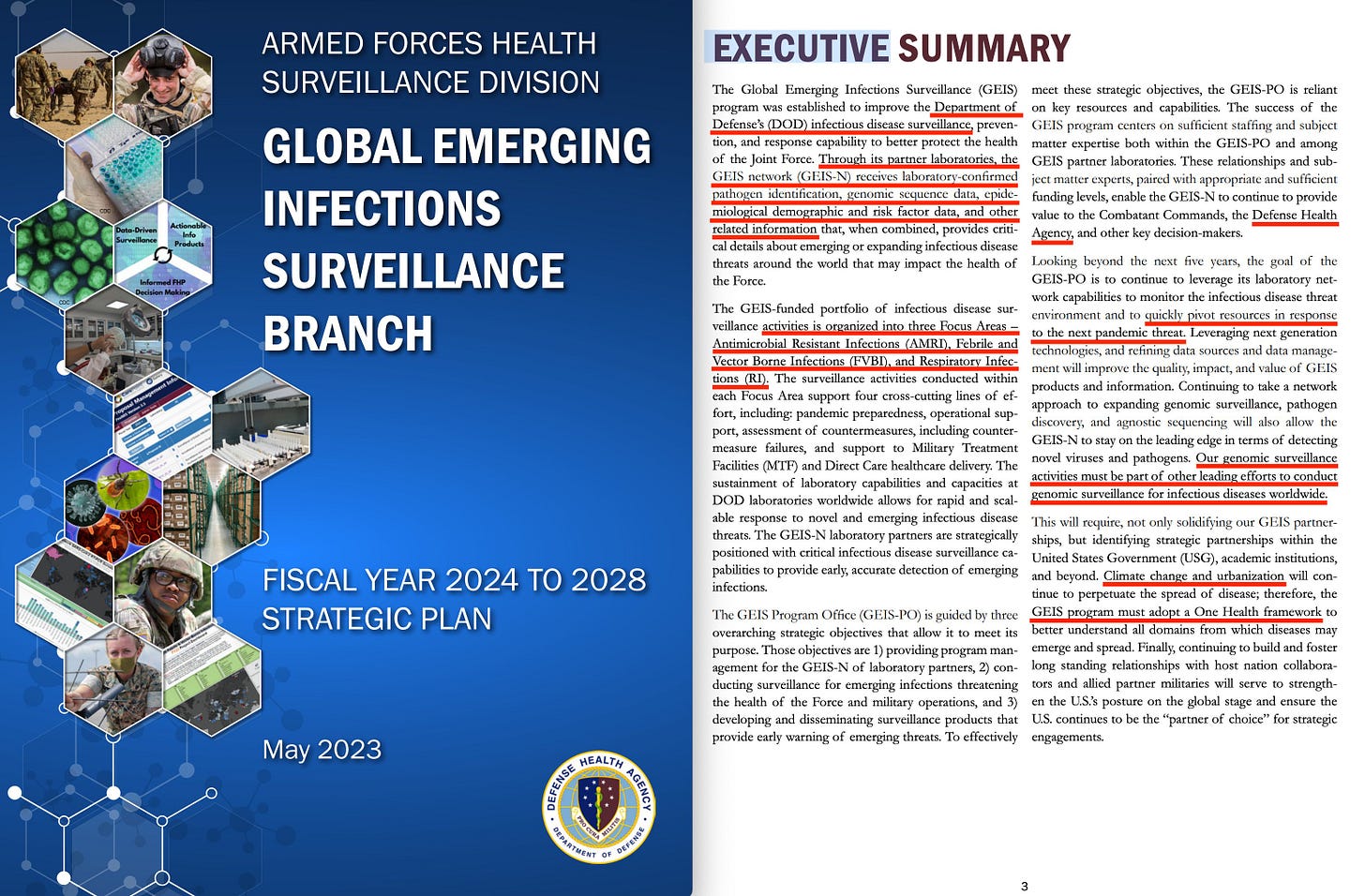


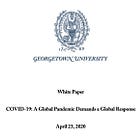
















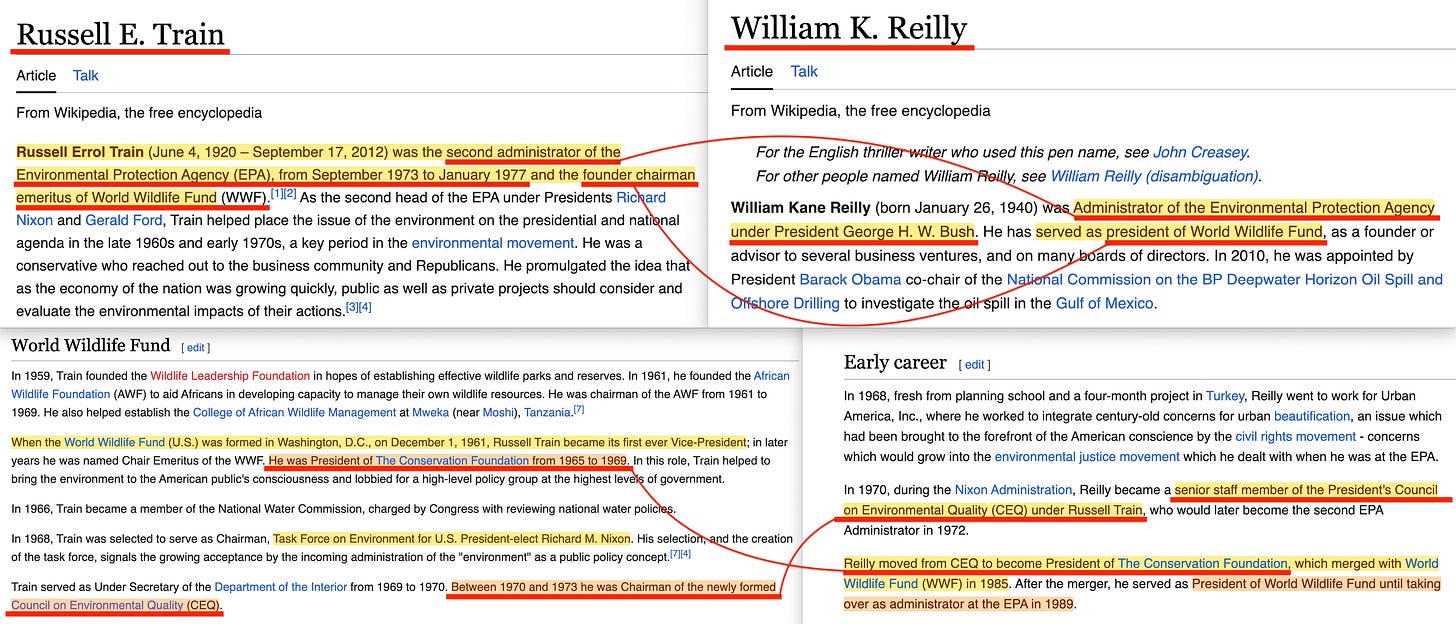
"improvement of the interrelationship between man and nature". This is the key unvalidated assumption that all of this meddling relies upon. That it is never put to the people to decide (in a supposed democracy) is a clue that it is BS requiring the expert magicians and representatives to cast their spells.
Praise and criticisms, because honestly esc, I think you have so much potential.
Praise - yes, your research is extremely thorough. Detailed. Kind of the density you might see in a well researched book. I think you have huge potential to be an impact writer. Excellent use of visuals as evidence.
Now, criticisms. Don't take personally. I think you have the potential to outclass my writing.
1) Wikipedia is NEVER a reliable source. Not ever. Why?
a) Many of the popular statements in Wikipedia do not actually have attribution or citation. Red flag.
b) Many of the citations provided for statements don't actually contain the wording or statements used. Red flag.
c) Many of the citations will be of low or no quality. For example, citing propagandist mainstream media rag pieces or unverifiable books (A.K.A. paywalled information, the worst kind of reference). Red flag.
d) Wikipedia pages are subject to rapid change. The more attention they get from hostiles, the more likely they are to change. It is like building your research on sand. Red flag.
e) Wikipedia itself used to admit it wasn't a reliable source (even now Wikipedia keeps shifting the sands of time and the page is gone, it now redirects where they shill about themselves: https://en.wikipedia.org/w/index.php?title=Wikipedia_is_not_a_reliable_source&redirect=no)
f) A legal precedent was set in Capcom Co. v. MKR Grp., Inc. where it was legally ruled that Wikipedia 'may not be a reliable source of information' (https://www.iadclaw.org/defensecounseljournal/judicial-notice-an-underappreciated-and-misapplied-tool-of-efficiency/). Red flag.
g) In an IPSO spat with myself, The Daily Mail lost to little ol' me because their citation was Wikipedia - and mine was a medical research paper. It is legally unsound, and will not save you in a legal spat. Red flag.
It should not even be used as a starting point or an overview. Wikipedia is bias - that bias will taint your own research, simply by reading it. It is bias by ideological groups of editors who have either too much free time for their ideological cause or too much money to care about integrity, who abusively edit, snippet and alter pages of works. It is rife with sock accounts. The line you quoted, I guarantee, will cease to exist the moment a government operative sniffs it (it also lacks a citation, making it even easier for removal).
Either hunt down original attribution or, if you can't find independent evidence of it, *don't use the Wikipedia reference*. If you're using Wikipedia as a punching bag (E.G. 'look how wrong they are'), only ever use screenshots. Never link, because like a sandcastle next to an ocean it will melt and dissolve. Obviously I cannot post a screenshot in this comment format so I'm forced to use a link, which will, no doubt also change in due time.
2) You need to answer the question of "So?"
I have raised this before. When writing an article, you need to answer the question of 'So?'. The audience will always be asking you 'So?'... 'So what?' 'So why would I care?' 'So why would that affect me?'.
Let us take the common ground, you wrote about Maurice Strong.
I recognise Maurice Strong, I wrote about him in the climate scam article. So what if he wrote the UNCED book? Why should I, an ignorant, brand new audience member, care? Either about him, the co-author or the book? 1972 is a long time ago, right? - Before you jump to 'answer' my comment, this is the reaction you should have when writing the article.
When the Daily Beagle mentioned Maurice Strong, the article quickly mentioned he was a 'Big Oil tycoon'. Why? Because it tells the person what the stakes are. It answers the 'So?'.
Maurice Strong is a Big Oil tycoon who advocates climate change. They then realise the stakes for them is he is a big, lying hypocrite and the entire thing is a sham. 'So climate change is a sham. A sham advocated for by a Big Oil tycoon'.
You haven't told anyone in your article who Maurice Strong is, and it doesn't matter if you told them before. You have to tell them again in new articles, because you will have new readers every time.
You've only told the audience what he has done. Maurice Strong could be a kindly saint and you're just 'Booo, UN bad' (without context, that's what it sounds like). If you immediately open by painting him as a Big Oil tycoon with a crap ton of money, you lay out the stakes, and you allow people to see it the same way you do.
'Here is what a big evil Big Oil tycoon with a crap ton of money is doing' - now the audience have a frame of reference. They know where they stand in relation to him. They also want to know what he is up to - you've sold the stakes and now they're invested.
3) Boring Title
Yes, yes, everybody in the world of the internet has the moral integrity to avoid clickbait, but you also have a moral obligation to signpost and *warn* your reader, and to do that you need neon signs and attention grabbing headlines.
I can anticipate your rebuttal now: 'I wrote that title because that is what it is about', and I know this because I used to do this to myself. Stop it. You can write better titles and still be truthful.
How would I re-write the title? A number of ways:
'I discover the papertrail of a corrupt Big Oil tycoon'
'What did this Big Oil tycoon get up to?'
'Wranglings of the UN'
'Big Oil controls the UN'
'The UN are infiltrated by Big Oil'
All of these statements are true, and vastly more interesting. They tantalise, offer a morsel. What's the papertrail? Who is the Big Oil tycoon? Why are they infiltrating the UN? What does the infiltration consist of?
If you don't sell your article, others won't want to click to read. I will admit I almost skipped over this because the word 'Discovery' didn't tell me anything. Discovery of what? Everything is a discovery. I've got 20-40 emails all vying for my attention about new discoveries they've found. A bird that doesn't sing a beautiful song won't get the bird ladies.
4) Listing facts
I will confess. A horrible war crime I once committed. Facts are important! Facts are fun!
Lets paint it another way. Facts are like nutrition, right. More of it, the better.
So would you like to receive your nutrients in the form of highly condensed, nutrient rich, highly purified, super-condensed tablets... or as a meal?
I bet you chose a meal. Meals have flavour. They have substance. They have design, taste and texture. They have depth. But they're not very efficient for nutrients. And of course they aren't, because part of it is about *enjoyment*.
People like to read a compelling narrative. Shit, people will read books about completely made up fiction and pay money for it so long as the narrative is compelling - Harry Potter, Lord of the Rings, Game of Thrones - you get the idea. J.K Rowling didn't get to top spot by going 'Top Ten Compelling Facts About Harry Potter'; she wrote a story. A narrative.
You need to write a story, a narrative. Not one in fiction, though, but composed of facts and evidence. Maurice Strong *did* things, he went places. What compels him? What are his motivations? What do *you* think are his end goals? Or beliefs? Why did he write a book and not have a radio play or a TV show?
If you make reading enjoyable, you will make the onboarding of facts enjoyable. People do not enjoy facts condensed end-to-end. Most folks will read about 2 pages and then their concentration wanes (blame TikTok or YouTube or whatever).
If you write a compelling story, a series of events, they will read for longer. But by God you have to be an artisan with words (and I will confess, esc, I am no artisan, my words are no Lord of the Rings poetry).